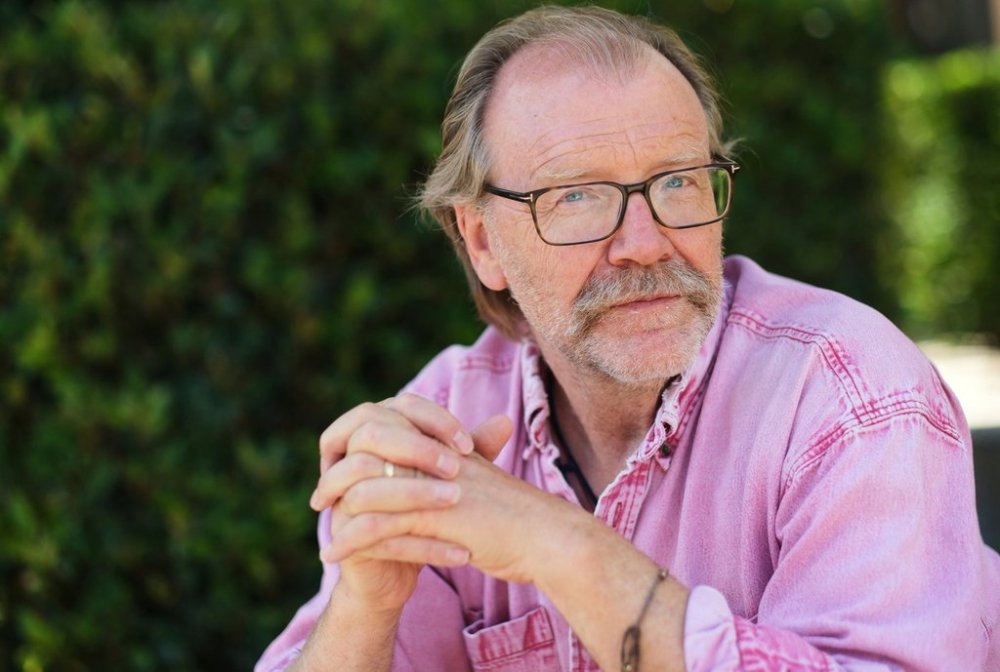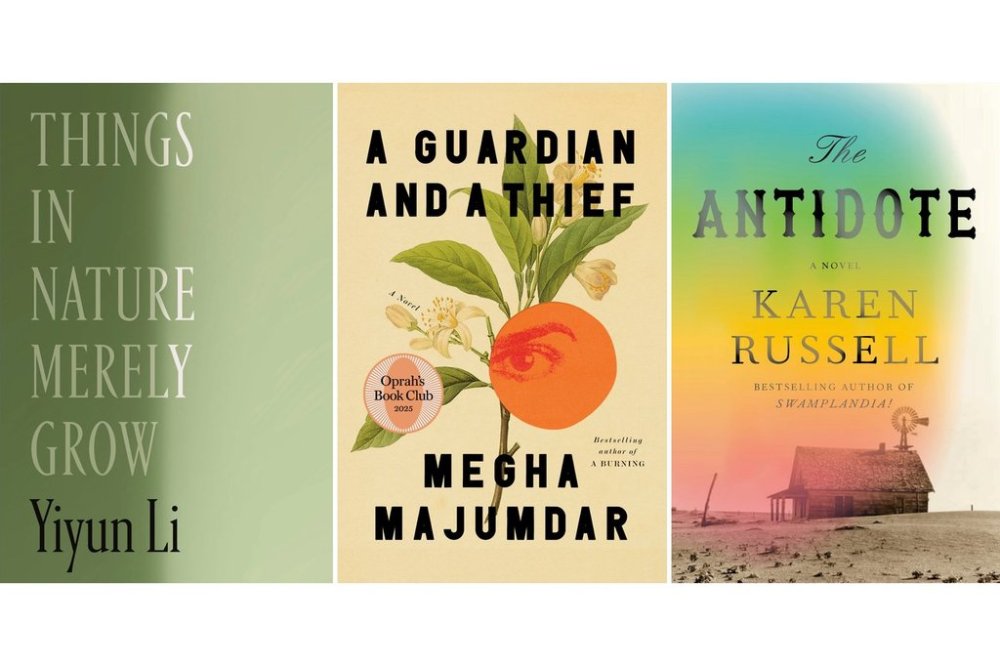Novelist Rabih Alameddine and poet Patricia Smith win National Book Awards
Advertisement
Read this article for free:
or
Already have an account? Log in here »
To continue reading, please subscribe:
Monthly Digital Subscription
$0 for the first 4 weeks*
- Enjoy unlimited reading on winnipegfreepress.com
- Read the E-Edition, our digital replica newspaper
- Access News Break, our award-winning app
- Play interactive puzzles
*No charge for 4 weeks then price increases to the regular rate of $19.00 plus GST every four weeks. Offer available to new and qualified returning subscribers only. Cancel any time.
Monthly Digital Subscription
$4.75/week*
- Enjoy unlimited reading on winnipegfreepress.com
- Read the E-Edition, our digital replica newspaper
- Access News Break, our award-winning app
- Play interactive puzzles
*Billed as $19 plus GST every four weeks. Cancel any time.
To continue reading, please subscribe:
Add Free Press access to your Brandon Sun subscription for only an additional
$1 for the first 4 weeks*
*Your next subscription payment will increase by $1.00 and you will be charged $16.99 plus GST for four weeks. After four weeks, your payment will increase to $23.99 plus GST every four weeks.
Read unlimited articles for free today:
or
Already have an account? Log in here »
NEW YORK (AP) — National Book Awards judges honored authors worldwide on Wednesday night, from Lebanese novelist Rabih Alameddine’s “The True True Story of Raja the Gullible (and His Mother)” to Chicago-born poet Patricia Smith’s “The Intentions of Thunder.”
Alameddine’s narrative of intense family bonds within the chaos of modern Lebanon received the fiction prize, while Smith, who has received numerous previous awards for her lyricism and intensity, won for poetry. The nonfiction prize was given to the Canadian Iranian novelist-journalist Omar El Akkad for his fierce indictment of the contemporary West, “One Day, Everyone Will Have Always Been Against This.”
Iranian American Daniel Nayeri’s “The Teacher of Nomad Land: A World War II Story” won for young people’s literature and Argentine Gabriela Cabezón Cámara’s “We Are Green and Trembling,” translated from Spanish by Robin Myers, was cited for translated literature.

Winners each receive $10,000.
The awards have often served as a kind of counter voice to current events. The night’s honorees expressed gratitude for prizes bestowed and for literature itself, and horror and disenchantment at the political and social climate, from immigration raids in the U.S. by masked agents to the carnage in the Middle East.
“I’m going to speak in Spanish because there are fascists who don’t like that,” Cabezón Cámara said, her words translated on stage by Myers.
El Akkad said it was “very difficult to to think in celebratory terms about a book that was written in response to a genocide (in Gaza). It’s difficult to think in celebratory terms when I spent two years seeing what shrapnel does to a child’s body.”
Alameddine’s speech, like his novel, combined humor and agony. He began with a lament for the bombing of a Palestinian refugee camp, but went on to joke about the demands of his agent, Nicole Aragi, and thank everyone from his gastrointestinal doctor to the “psychiatrist who has been telling me to get over myself for more than 20 years.”
Smith, in a highly emotional speech, offered a litany of racial and social barriers she confronted, including harsh words from her ailing mother, while offering tribute to poetry as a path to transcendence.
Hundreds of writers, publishers, editors and other industry professionals gathered at Cipriani Wall Street in Manhattan. The 76th annual National Book Awards, the so-called Oscars of book publishing, were a celebration, a protest and a performance.
Musical guest Corinne Rae Bailey opened the ceremony with a relaxed, funky “Put Your Records On,” and introduced host Jeff Heller, who greeted the “glitterati of the literati.”
The Emmy-winning actor joked that he wasn’t sure why he was the host, thanked everyone from celebrities who lead book clubs to independent store owners and lamented that a typo in early editions of his recent book, “A Certain Actress,” left some readers thinking he had published “A Cetain Actress.”
“Can you imagine Madeleine L’Engle discovering the cover of her book read ‘A Wrinkle in Tim’?”

Honorary awards were presented to fiction writer George Saunders and author-publisher-mentor Roxane Gay.
Saunders, widely praised for his legacy of dark humor and warm compassion, was this year’s recipient of the medal for Distinguished Contribution to American Letters, previously given to Toni Morrison and Robert Caro among others. He remembered his early growth as a writer, and how revision changed him on the page and in real life, a “truth-seeking” process that sets the artist apart from the dictator and other bullies.
“We’re open to finding out how things actually are, not how we think they are, not how we wish they are, but how they actually are,” he said. “And this puts us in a less delusional relation to reality.”
Gay, given the Literarian medal for her contributions to the book community, noted that writing was a solitary endeavor but that sharing the word was a different challenge. She cited proudly her history of publishing and promoting diverse voices, mocked the idea that “straight white men just can’t catch a break” and urged the industry to change.
“There is room for all of our voices and there are people in this very room who have the power to do better,” she told the audience. “You have the power to abandon old ways of thinking and nonsense metrics like social media followings as a determining factor in buying a manuscript.”
The National Book Awards were presented by the nonprofit National Book Foundation. Each competitive category was voted on by judging panels that include writers, booksellers and critics. They select winners from hundreds of books submitted by publishers.

